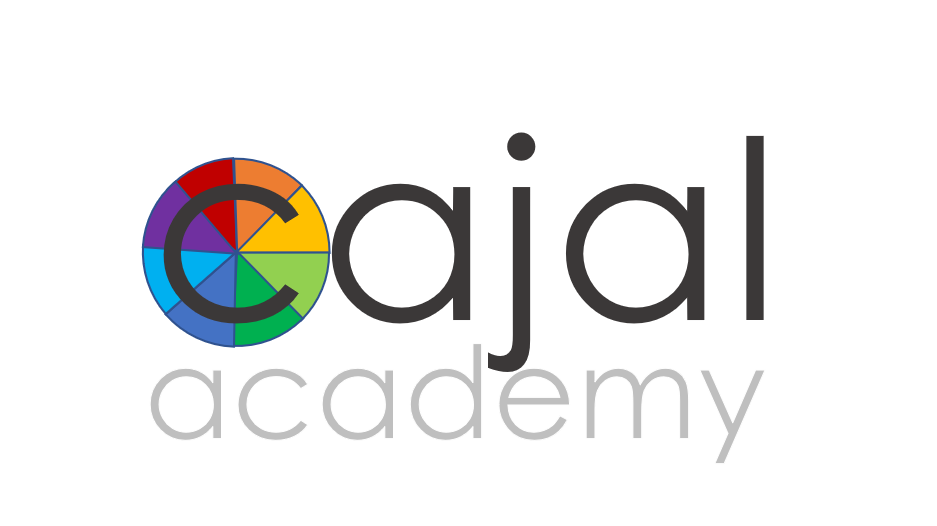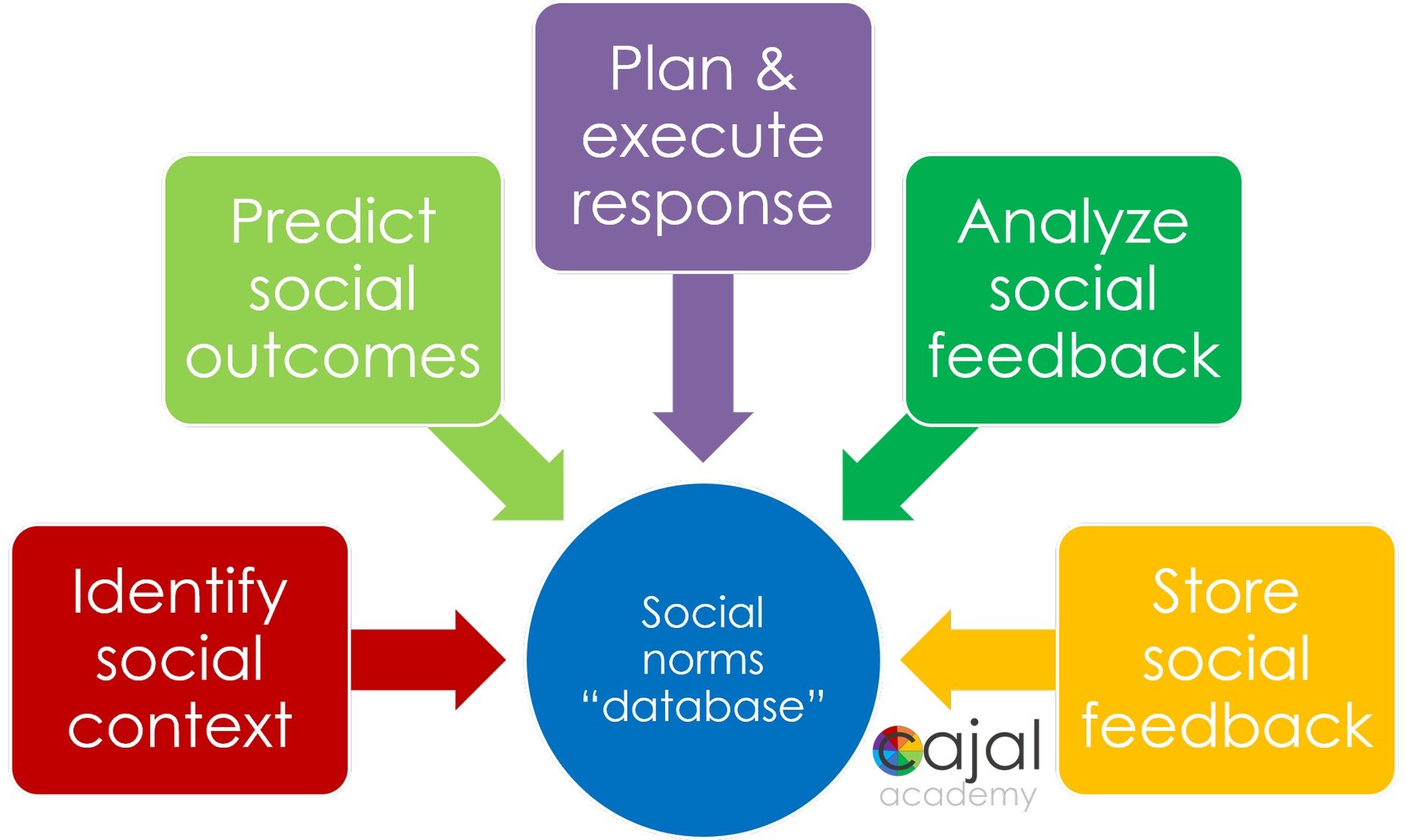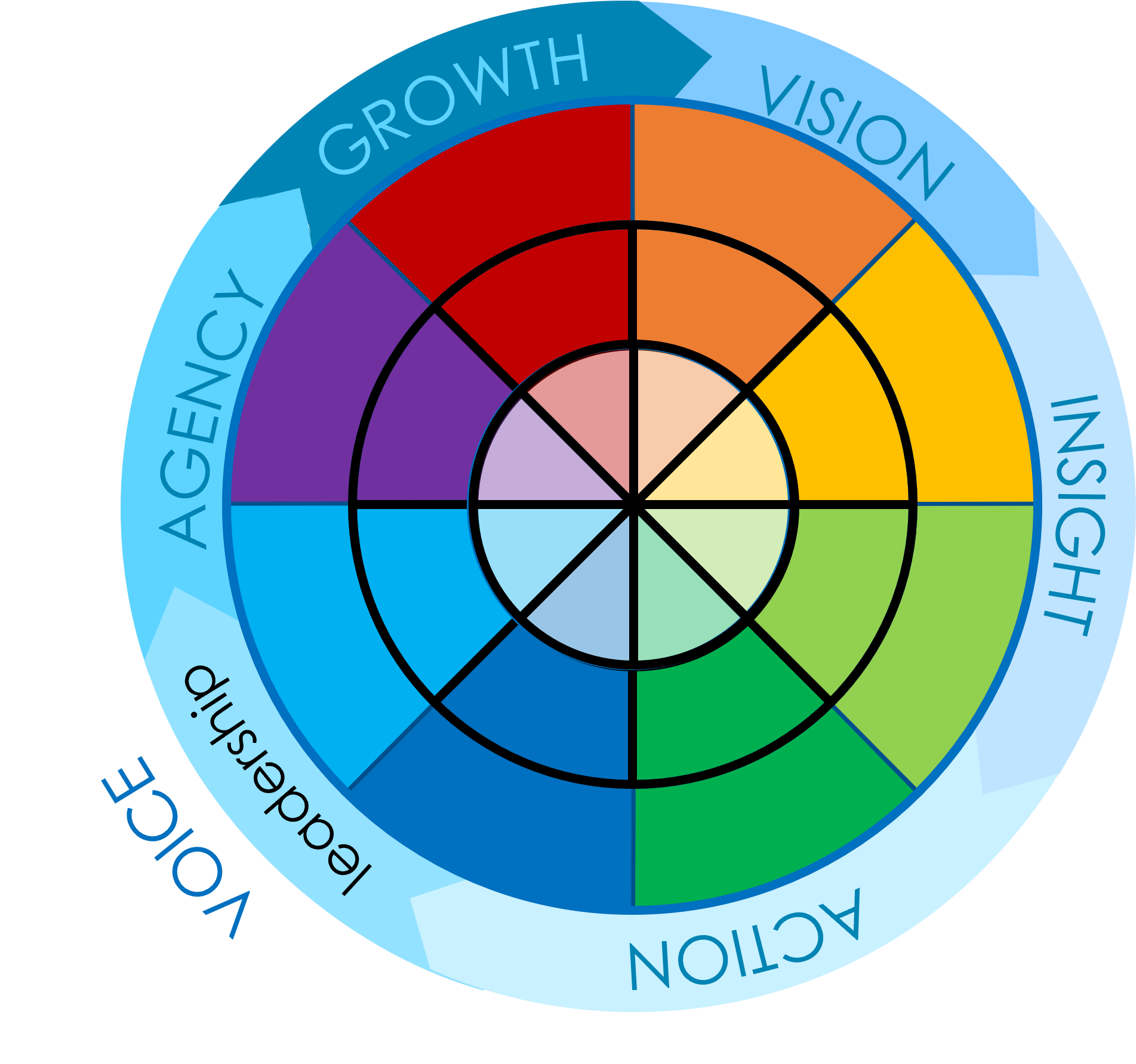We meet kids where they are, and help them develop the social and leadership skills they’ll need when they become who they want to be
Being someone who naturally sees the world in unique ways is a blessing, but without the peer collaboration and social communication skills required to communicate those ideas to others and to do so in a way that makes others want to follow them can turn into a curse. These are skills that all innovative thinkers need, and yet this is an area where many intellectually gifted students struggle.
All Cajal Academy students receive the Leadership Skills instruction within our Voice to Vision Curriculum, developing the peer collaboration, communication and social leadership skills required to give voice to your vision so others want to follow your leadership.
At the core of our social-emotional curriculum is the understanding that social interactions reflect each child’s “Not Yet Skills:” a lens that replaces culturally-loaded concepts like “character” that kids may struggle to make actionable with the more scientifically-grounded understanding that our current social experiences are the product of myriad skills—which we can develop through the process of neuroplasticity. This gives kids permission to be who they are and where they are in the learning process, and a growth mindset about their own emotional development.
We coach our students in how to use this powerful lens to understand their peers’ actions as well, giving them powerful perspectives that foster social and emotional resilience. We infuse these understandings throughout our program, specifically fostering our community’s unique culture of not just accepting but celebrating one another’s differences. By educating students on the science of how children grow, think and feel, and on the range of neurophysiological differences, we provide the basis for true empathy towards one’s peers. Learning differences, self-regulation challenges and more become “just science,” taking the judgment out so kids can bring their best selves to the learning experience. Within our student body, this translates into an authentic culture of shared progress, as students gain confidence and a vocabulary for sharing and supporting both our challenges and our victories, harnessing the healing power of a safe and supportive peer group. This provides what is for many kids a first experience of being able to safely acknowledge and receive support for their struggles within a peer community, fostering life-long skills in seeking and accepting support for our challenges.
Taking this a step further, we put these understandings at the heart of a toolbox kids can use to foster truly inclusive neurodivergent communities, with a shift from “following the rules” to “fostering community” as the goal of our social-emotional and behavioral curriculum. Paradoxically, our small setting accelerates this work, by giving students a safe and more predictable social environment within which to do the self-reflective work required to master these new skills. Parents report that this approach, which is unique to Cajal Academy, translates to sustained social growth at home and in the community, often within just a couple months of joining the program.
Use the links below to find out more about this scaffolded approach to social-emotional learning.
We break social challenges down into the “Not Yet Skills” that drive them, and create personalized Student Growth Catalysts to address them.
For those students who have social-emotional challenges interfering with access to their gifts, we develop personalized social-emotional challenges applying our research-backed Neuro- and Trauma-Informed Approach to identify and enhance the discrete neurocognitive and neurophysio skills that drive them.
We create organic opportunities to develop peer collaboration skills
We build peer collaboration into each project project-based learning, tailored to what each student is ready for today. We take a scaffolded approach to building this essential leadership ability, including listening to opposing views, perspective taking and compromise, and use our Catalyst Method to build up foundational skills for students who struggle in these areas.
We foster empathy by teaching kids how to understand each others’ actions through the lens of their “Not Yet Skills”
Social interactions rely on complex neurocognitive and neurophysiological skills, so uneven neuropsychological profiles can deeply affect communication, social interpretation, and emotional resilience. We help students understand these connections and how their “Not Yet Skills” shape their social actions, fostering empathy for both themselves and others. Our Human 101 curriculum supports this by providing a scientific framework within an academic context.
We accelerate social growth through our small, mixed age community
Many gifted and twice exceptional students find that they more easily find kinship with people who are older or younger than themselves than they do with same-age peers. We believe there are a number of reasons behind this, and use this to our students’ advantage by having a mixed age community of peers that gives older students mentoring and leadership opportunities, while offering powerful role models for their younger peers. For students whose social anxieties or social challenges have held back their enjoyment of social interactions previously, we find that the combination of our skills-based approach and our small environment accelerates social growth, by giving students the space and nurturing community they need to develop those skills, leading to outsized social growth within community-based settings and activities.
We accelerate social-emotional learning through individualized Student Growth Catalysts applying a nueroscience-based approach
It is not uncommon for bright and gifted students to struggle socially, as complexities in neuropsychological profiles can undermine social experiences just as they do academic ones. We support these learning needs through a systematic and neuroscience-based approach, with data-driven and highly-individualized programs implemented through our Student Growth Catalysts. Apply today to find out how this could help accelerate your child’s growth.
Learn more about our Vision to Voice Curriculum and the skills in our “toolbox” for innovative thinkers












